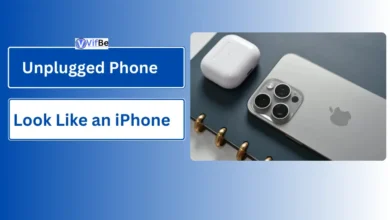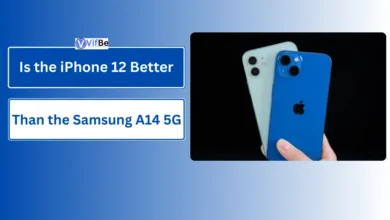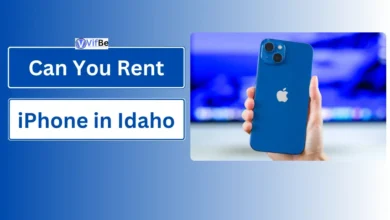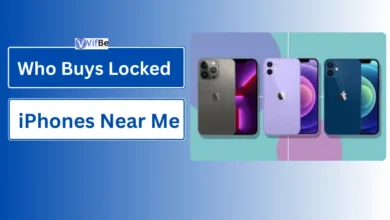Is WhatsApp HIPAA Compliant? Essential Insights for Healthcare Providers
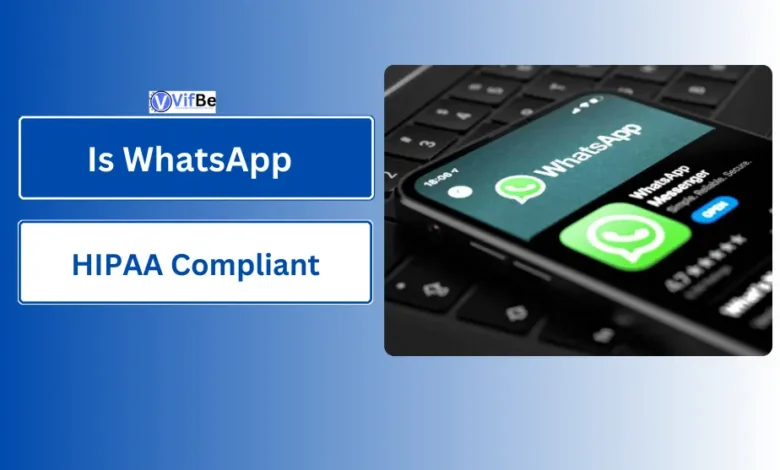
In light of rapidly growing communication in healthcare through the internet, healthcare providers wonder whether WhatsApp is HIPAA compliant. Ensuring that patients’ data are protected also come with responsibility that requires one to safeguard any method, or medium of communicating health information.
As a popular app with easy access, the end-to-end encryption of WhatsApp is perfect for health care needs, but there are some HIPAA rules which every health care staff who uses non-compliant app must know. This article raises the question Is WhatsApp HIPAA Compliant? As well as look into some factors that providers should consider when it comes to secure messaging.
Understanding HIPAA Compliance
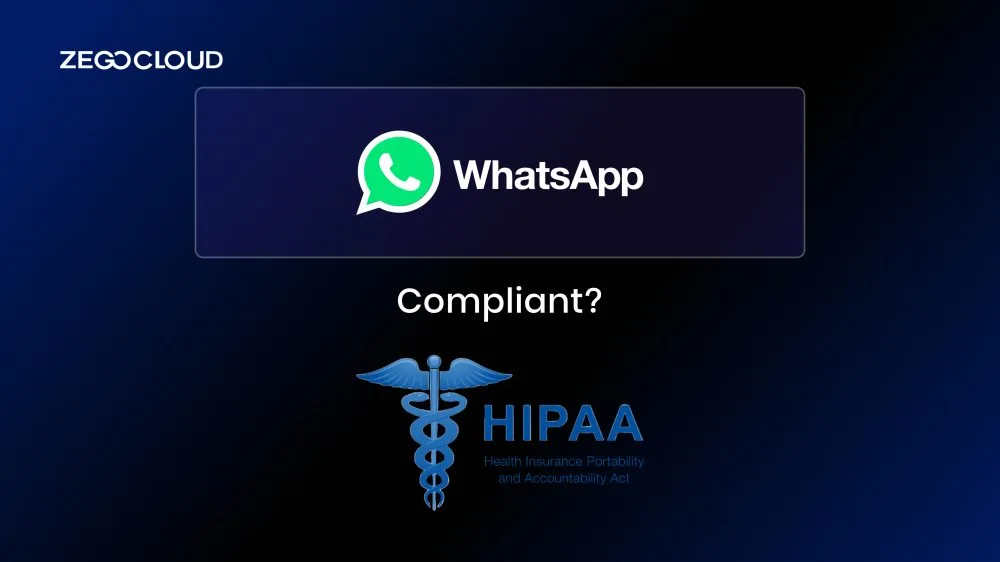
The purpose of the Health Insurance Portability and Accountability Act (HIPAA) is to safeguard patient data alongside the rights and privacy of any health related information. HIPAA means the rules that have been developed on how the health care providers and their business partners deal with the PHI.
As per HIPAA rule, particular privacy and security regulations require sophisticated technical and administrative controls. These standards that app must fulful to be considered compliant are usually encryption, secure access controls, audit trails and practices between healthcare sources and service providers who transmit or store PHI.
Meaning to stay compliant in HIPAA when it comes to messaging platforms, it is not enough to offer highly secured technologies only. The desired features also include its ability to satisfy the standards of privacy rule and security rule. This means that an app’s vendor will need to sign a Business Associate Agreement (BAA) with a healthcare provider so that both parties can be held accountable for the protection of PHI.
Hence, just utilising an encrypted app doesn’t suffice to make an application HIPAA compliant if these agreements and the said particular privacy measures are not incorporated.
Why HIPAA Compliance Matters for Messaging Apps
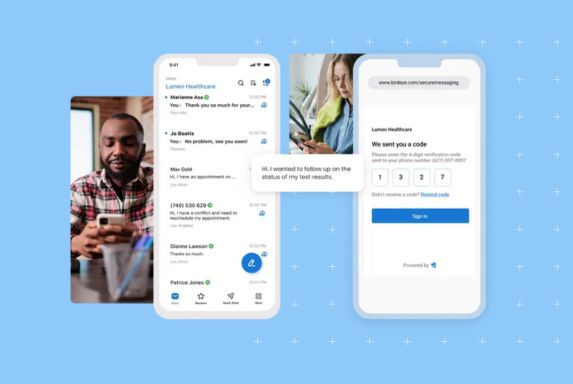
With more of the healthcare industry relying on digital forms of communication, adherence to the HIPAA rules is critical concerning all forms and types of communication, and more so, with the uptake of telemedicine and remote patient care.
Chat apps enable the healthcare providers to communicate with, the patients and other healthcare workers with an added benefit of protecting patient information. But non-compliant messaging solutions pose many risks to healthcare providers and organizations.
For example, if PHI is breached by way of a non-secure app, the healthcare providers possibly might be sued legally besides being fined along with damaging their reputation. Therefore, for care givers it seems HIPAA compliant messaging is more than a worry about regulation but has become a necessary aspect in maintaining patient’s trust and data confidentiality under today’s health delivery systems.
The dangers of using non compliant apps for HC communication
It must be noted that communication in health care, which is done through nonHIPAA compliant forums may have several dreadful implications; including loss of sensitive patient data and fines. Devices not following compliant have higher chances of being attacked and this puts PHI at risk. When patient data is lost, it not only goes against HIPAA laws but also goes against the contractors duty to uphold their patients rights.
However, several challenges are experienced because these apps do not possess the capacity to sign a Business Associate Agreement with healthcare providers, a requirement under HIPAA. Therefore there are penalties that such a healthcare provider using such an app may incur that can be from hundreds of thousands to millions of dollars depending on the type and level of breach.
Does WhatsApp Meet HIPAA Security Requirements?

In this respect, WhatsApp has end to end encryption, and that I must say is a step towards secure messaging. Such encryption ensures that only the sender and the receiver are to read the messages and not a third party. However, the end-to-end encryption is not enough to satisfy HIPAA regulations for compliance.
One of the main features is missing – audit log: it is critical under HIPAA for tracking the messages containing PHI and actions made with it. Furthermore, WhatsApp lacks a BAA that can be provided to the users thus the company cannot be taken to court for violating hipaa for patient information protection. Namely, although WhatsApp increases the level of encrypting the information, it still does not have a security plan and the compliance agreements that are needed for HIPAA, which makes the app non-suitable for safe handling of PHI.
Patient Consent and using WhatsApp
The care providers using non-compliant apps are an argument in healthcare but they can do so with the intention of the patient. As we understand, the patients themselves may agree to use a specific communication channel, but it is not an excuse to neglect HIPAA compliance.
Yes patient consent may offer so some degree of protection in some circumstances but it does not give a healthcare provider legal grounds to ignore HIPAA rule. However, even where consent has been given and an operation has been performed, thecare givers may still fall foul of the rules and be in breach of them with attendant penalties for non compliance. This is why using non HIPAA compliant app such as WhatsApp based solely on patient consent is not advised and considered dangerous.
Scenarios That Show HIPAA Breaches Involving Messaging Applications
It was seen in several cases as to how risky it might be to use noncompliant messaging apps in healthcare environments. A typical example was a clinic sending patients’ PHI via SMS, which is a non-hipaa compliant communication channel. New – A data breach took place in the organisation and this affected the sensitive information of patients, it attracted fines and_unix and affected the reputation of the health care sector.
Further similar occurrences with other non compliant messaging apps has resulted to severe fines, implying the need to only adopt the HIPAA compliant solutions for healthcare purposes.
Substitutes to WhatsApp for HIPAA Compliant Messaging
For this reason, the following HIPAA compliant communication mediums to the healthcare providers are available. There are instant messaging systems like TigerText, Signal, and Spruce Health, all of which are safe for health care and include options for audit trails, data encryption, and BAAs.
These are specialty clinical social networking sites intended for the utilization of health care workers which are oozing with security measures that are compliant with the high requirements set by HIPAA. All of these options let the healthcare organizations to sustain the required degree of protection, while delivering the usability and convenience that the patient management requires.
Healthcare Providers Can Take to Ensure HIPAA Compliance in Messaging
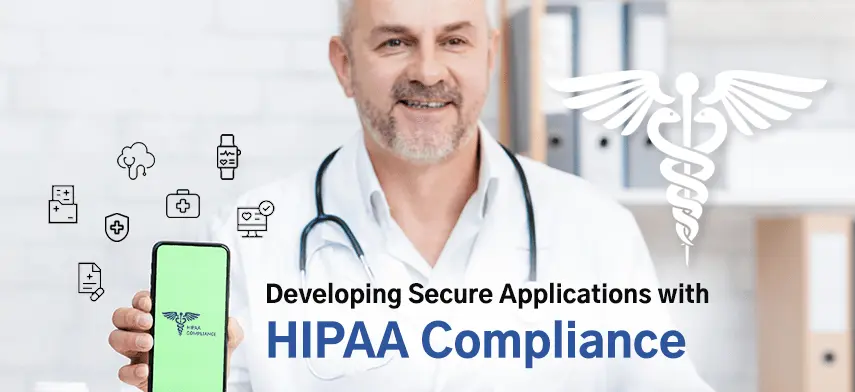
Any healthcare organization that uses messaging for patient interactions must ensure that it chooses an offering that will pass through HIPAA compliance tests. This begins with confirmation that any given communication platform maintained by the provider of the application has a BAA as this document compels the vendor to ensure the confidentiality of PHI.
There are areas that are need of attention; these come in form of security measures such as two factor authentication, end-to-end encryption and audit trailing as well as other HIPAA regulations. For providers who have been forced to use non-compliant platforms, the following internal guidelines have proven to be helpful;
However, the best recommendation is to always ensure that the communication platforms are certified secure HIPAA compliant platforms.
HIPAA Compliant Messaging: Definition and Main Terms
In discussing HIPAA compliance for messaging, it’s important to understand key terms that define the security measures and responsibilities involved:
HIPAA (Health Insurance Portability and Accountability Act): This regulation prescribes rules concerning privacy of patient’s information and orders every entity that deals with PHI to adhere to them.
PHI (Protected Health Information): Includes partial or complete information about any individual’s physical or mental health or medical history which HIPAA mandates to safeguard.
requirements of the HIPAA.
Business Associate Agreement (BAA): An understanding between service providers and clients that binds the service providers to HIPAA while they deal with PHI.
Audit Logs: Some of these track the user activity, which is especially important for compliance and security to deal with the sensitive patient information.
Two-Factor Authentication: A security measure where a user has to first prove who he/she is often a necessity in secure messaging for healthcare.
Conclusion:
Alas, the application as it is provided by WhatsApp is not HIPAA compliant, even though it has end-to-end encryption. Due to the absence of a BAA and because WhatsApp lacks necessary compliance characteristic, such as audit trails and secure access, it is unlawful for use in healthcare when handling PHI.
Any further options regarding information exchange should be chosen with due regard for HIPAA requirements, keeping in mind that healthcare facilities must employ only communication methods that can guarantee the confidentiality of patient information, and therefore patients’ trust. Thus, choosing compliant platforms healthcare providers not only minimize such risks and, therefore, protect themselves from financial losses in case of HIPAA violation but also prove to the patients that their data will be safe under new conditions of health sector digitalization.
FAQ: Related Is WhatsApp HIPAA Compliant
What does HIPAA compliance mean for messaging apps?
HIPAA compliance has particular obligations for exempting messaging applications that connect different healthcare providers and patient data to fulfill certain standards for guarding PHI when shared across applications. Some of these measures includeEncrypting dataAccess controlsAudit logsOffering Business Associate Agreement (BAA) with health care entities
Is WhatsApp HIPAA compliant?
No, WhatsApp is not HIPAA compliant. But while it has end to end encryption, it lacks the feature such audit logs, access controls, or even a BAA as needed by HIPAA. They include patient privacy issues, patient identity information, and other aspects of the interaction which make it unsuitable for handling sensitive patient data.
Why does HIPAA compliance matter for healthcare messaging?
HIPAA compliance is important since it safeguards personal information, preserve health information and decrease the chance of security compromise. These messages are dangerous to the organization because they attract the lawyers, fines from the government and lack of patient confidence.
Can patient consent make WhatsApp HIPAA compliant?
No. That flexibility is evident in the conditions where the patient’s consent has been given; however, the existing regulation does not elude HIPAA rules. As mentioned before, even if the patient has granted the organisation consent to collect their PHI, they move to HIPAA-compliant solutions to ensure that the respective data is protected rightly. WhatsApp therefore also has legal risks and HIPAA violations with non-HIPAA compliant precautions even when used.

